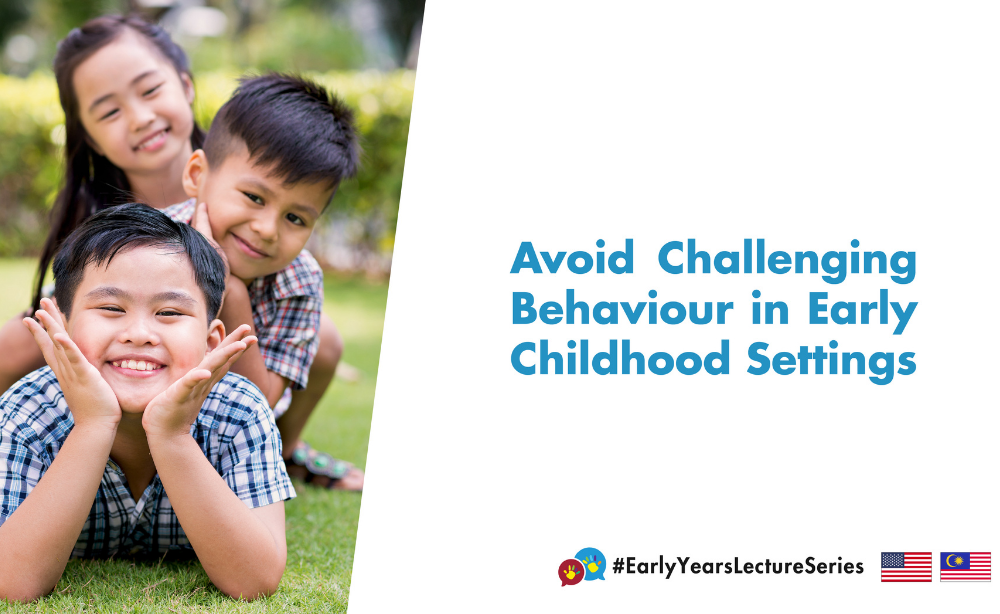SEGi College Subang Jaya recently held a webinar conducted by Ms Rae Pica, a renowned early-childhood-education consultant who is dedicated to the development and education of the child as a whole. She is the author of twenty-one books, including “What If Everybody Understood Child Development?”. She has shared her expertise at the Sesame Street Research Department, the Head Start Bureau, The National Association for the Education of Young Children (N.A.E.Y.C), among others. Rae’s mission is to ensure that the development of children guides our practices with the little ones.
Rae began her interesting session by asking participants if they had ever wondered why children are exhibiting more challenging behaviours these days to the extent of driving their parents insane? Many of the participants related to this question, promising a very engaging session indeed.


In her introduction, Rae identified some valid reasons for the increase in challenging behaviours among children, which include:
- Not enough time to play
She explained that nature intended for the young of all species to play and depriving them from playing, adding that when adults demand that children accomplish things that they are not developmentally equipped for, disaster ensues.
- Children need to be prepared for reading and writing
Rae explained that children become frustrated when they cannot fulfil the needs of adults. When adults are only concerned over the development of the child’s brains and nothing else seems to exist or matter, children are not likely to respond positively.
- Cooperation vs competition
Rae said that parents’ obsession with their children’s success e encourages them to cheat in order to win. As adults, we stifle creativity and the love for learning by directing children to learn through worksheets or workbooks or standardised testing and assessment. Encouraging children to compete with one another and focus on winning does not bring out the best in children’s mental, emotional and social development.
- Children spend hours in front of screens having sedentary lives She explained that children need much more than getting entertainment and knowledge from their digital devices. To nurture them, we as adults are required to set down rules.
Following this eye-opening introduction, Rae proceeded to offer solutions:
- Instead of saying no, say, “Show me you can.”
Sitting in a chair makes us tired and unenergetic and results in fidgeting.
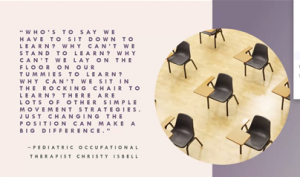
Research has shown that sitting in a chair makes us tired and unenergetic, and for who are asked to sit for long periods of time will start to fidget. The solution is to allow children to move and to encourage movement.
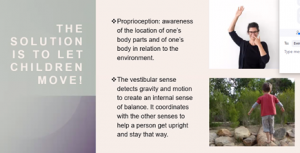
She explained that some children keep falling over their feet as they walk or must look at their feet one foot at a time as they climb the stairs. These children have not acquired vestibular sense, which is the sense that detects gravity and motion to create an internal sense of balance. It helps coordinate with the other senses to help a person get upright and stay that way. This is the connection between physical activity and learning.

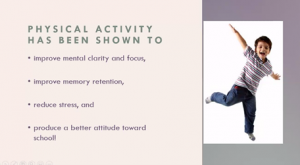

She stressed that when we allow children to be children, they will be less likely to misbehave.
Rae also came up with some interesting and simple activities to help teachers and parents get children to move and she also added some tips on how to modify the games while still observing SOPs.
Solution: Games
- Circle game – a symbol of unity – social skills to create a sense of community.

Playing games in a circle fosters unity and gives children a sense of belonging. Many games start by forming a circle. Startup games like the “Name game” when one will clap the name of each child focuses on the syllables of names and promotes the feeling of friendship or friendliness. It’s also a great game one to get everyone to remember each other’s names too. Playing the game called “Make it rain” uses fingers to mimic the rain, encouraging smaller finger movements to bigger arm or hand movements for the heavy rain to even leg movements for the thunder.
2. Promote cooperative games. Here are some benefits of promoting cooperative games:
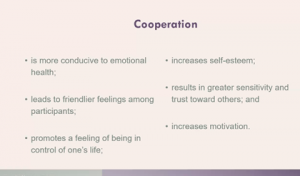
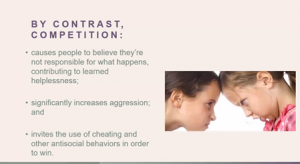
An example of a cooperative game is “Switcheroo!”.
Get children to pair up and stand back to back. When one calls a name, they touch hands and then go back to being back to back. At some point of the game, one can call out “switcheroo!”. Which would mean that the partners need to switch partners. You can even have a lost-and-found area for children who cannot find a partner and eventually someone will go to this area to then be able to find a partner.
Playing games to foster self-regulation is also a good way to help children’s behaviour.
- The Statue game helps children develop control over their movements and at the same time is exciting for lots of children.
- “Move slowly” is like walking through peanut butter or in space.
- “Blast Off!” helps children learn to wait.
- Another game is when children pretend to be seeds that slowly grow into the biggest and best plant ever.
- Cross-lateral movements or cross movements are a great way to prevent restlessness and is a good brain-break activity.

There were lots of questions that were asked following Rae’s insightful webinar on how to manage children’s behaviour and also on coping strategies for parents. Two participants from the webinar also gave their opinions and suggestions on how to cope with sibling rivalry. Professor Chiam explained the importance of parents understanding the root problem in order to deal with children’s behaviour. Dr Brandon from a local higher education institution commented on how simple the activities suggested by Ms Pica were and how practical her solutions were that he said he will use them on his five-five-old son.
You may watch the replay of the live series >>here<<
The #EarlyYearsLectureSeries continued with Associate Professor Bonnie Yim’s Intergenerational Relationships: Stories from Selected Countries in the Pan Pacific Region on 12 March at 10 AM.
If you are interested to attend our next sessions, be sure to sign up for our next session by clicking on the link here: https://www.eventbrite.com/e/176812439767
Needless to say, this was an overwhelmingly successful webinar that spoke volumes to the participants, and left everyone thoroughly educated, informed and inspired. SEGi College is proud to have been instrumental in this webinar and promises to bring many more such elucidating sessions in the near future.

